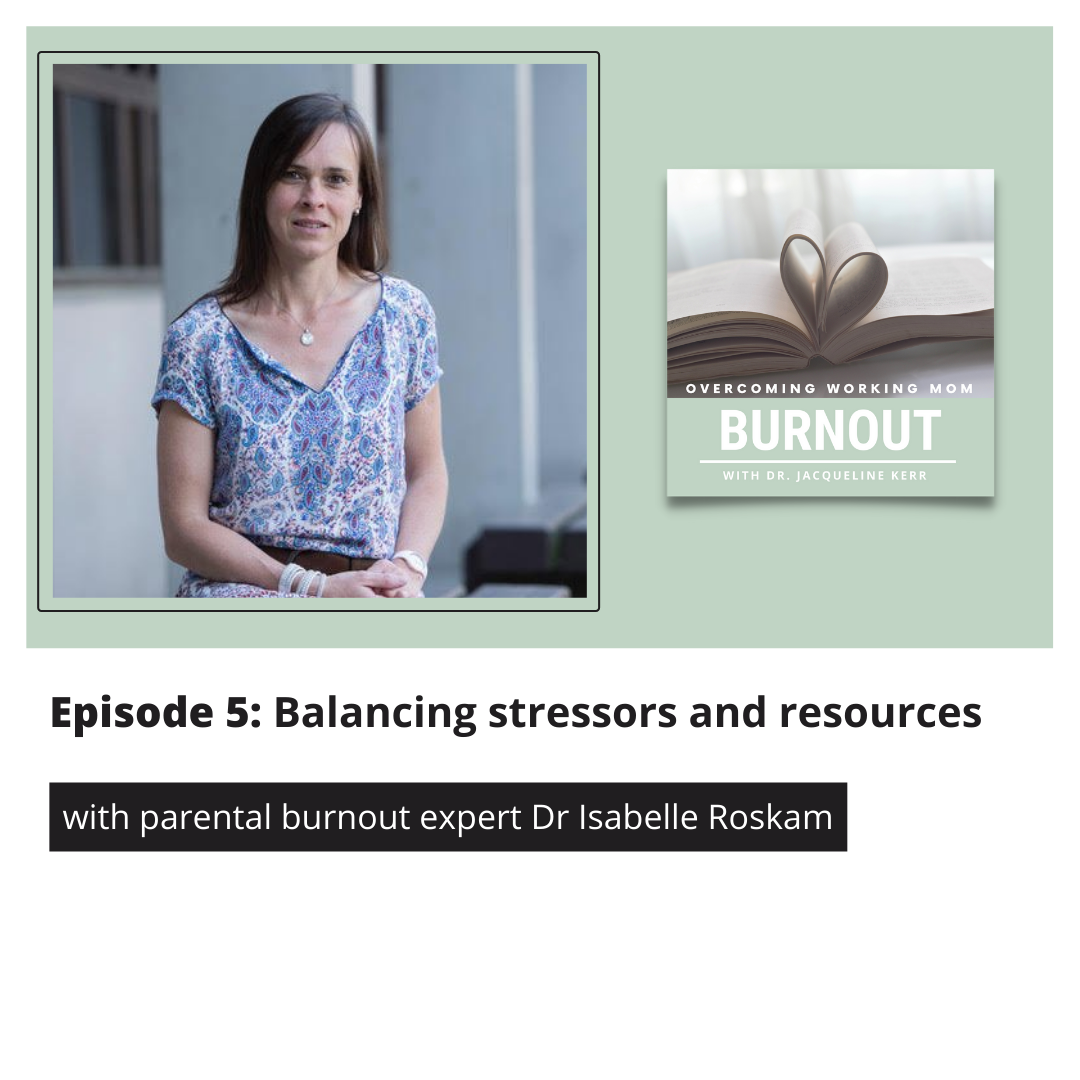Episode 5: Balancing stressors and resources
with parental burnout expert Dr Isabelle Roskam
Key Takeways
It’s normal to feel some stress as a parent, it helps motivate us to protect and develop our children.
Parental burnout and job burnout have similarities and differences. Some people find work or home a welcome escape from their main stress. Exhaustion and emotional detachment are present in both job and parental burnout.
The loss of productivity in job burnout is different in parental burnout. You are saturated but still know what to do.
Parental burnout is usually present in highly involved parents and when they lose that ability to stay involved they notice a big difference.
Parental burnout is a process and it is important to recognize exhaustion and not move on to emotional detachment as then the children are harmed.
If you are a perfectionist or have low emotional IQ you might be burned out at work and home because your expectations are too high and your ability to process emotions is low.
We found the highest rates of parental burnout in individualist Western countries. Individualist self-reliance makes it harder to ask for help and makes you more competitive with other families. Individualism results in less support from the state and more recommendations for what you are supposed to do. Individualism also brings expectations of equality and so women are disappointed when there is not equality in the parenting tasks. We also teach our children to stand up for themselves and that means they are harder to manage.
We can reduce parental burnout by writing down all the stressors and all the resources. We look for the ones we have control over and the ones we want to prioritize. Then we let go of stressors and leverage resources. And you weigh up the costs and benefits of each possibility. What is possible to change might also change overtime.
Bio
Isabelle Roskam is a mother of five, a Doctor of Psychological Sciences, and a Professor of Developmental Psychology at the University of Louvain in Belgium. Before devoting herself to the study of parental burnout, Isabelle directed the H2M Children research program on the development and care of so-called difficult children. At the same time, she worked for ten years as a clinician at the Saint Luc University Clinics in Brussels in the neuropediatric unit. With Professor Moïra Mikolajczak, they co-direct the Parental Burnout Research Lab, an internationally recognized laboratory in the field of parental burnout, and the Parental Burnout Training Institute, which provides training to professionals on the subject. They have also co-authored many scientific articles in peer-reviewed journals, and several reference books on parental burnout, the result of their research and their encounters with burnt-out parents.
Links to Additional Resources

